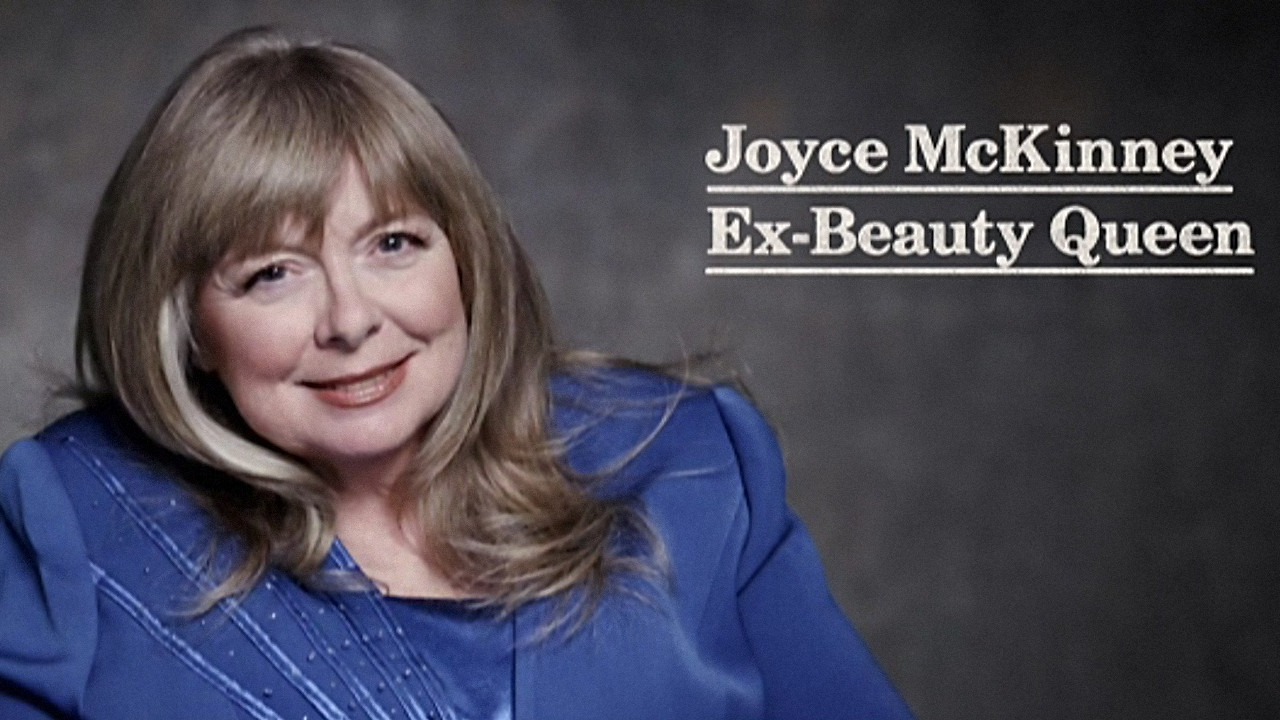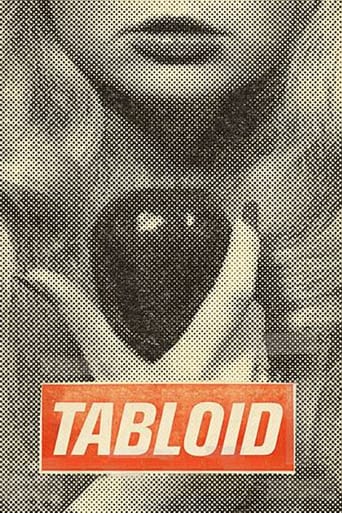Linbeymusol
Wonderful character development!
Comwayon
A Disappointing Continuation
Livestonth
I am only giving this movie a 1 for the great cast, though I can't imagine what any of them were thinking. This movie was horrible
Calum Hutton
It's a good bad... and worth a popcorn matinée. While it's easy to lament what could have been...
hte-trasme
The story told (or approached, or retold in varying ways) in "Tabloid" is an extraordinarily salacious one, and riveting on that level in the way that extraordinarily salacious stories are. We're watching because we want desperately to see what happens next, but as we do so we are acutely aware of the sensational nature of the events. Which is why it is appropriate that "Tabloid" is as much about the tabloid exploitation and exaggeration of the Joyce McKinney story as it is about the story itself. After one-larger-than-life event, the press becomes as much as part of the story as what it is they are covering. And as the interview subjects tell the story, it becomes apparent that rarely has the inherent subjectivity of events been laid out with such wildly (in every sense) versions of events. It's a credit to Morris that he draws from this story that is so outlandish as to be almost absurd a thoughtful commentary on truth, will, privacy, love vs obsession, and more. At the center of it is the extraordinary interview with McKinney herself, who comes across -- then and now -- as charismatic, funny, obsessed, and more than a little unhinged. Smiling ingratiatingly as she explains (or explains away) every step of her life from (allegedly) the woman who brought her dog to her every modeling shoot to the woman who flew to Korea to have another dog cloned (disguising herself as an Indian and a deaf-mute somewhere in between), she is compulsive viewing. "Tabloid" pulls of the coup of being completely fascinating for the reasons that tabloids are and -- because it is completely self-aware in the regard -- being also a very thoughtful meditation on the issues raised by both press sensationalism and this story itself. Quite an accomplishment.
gavin6942
A documentary on a former Miss Wyoming (Joyce Bernann McKinney) who is charged with abducting and imprisoning a young Mormon Missionary (Kirk Anderson).The film becomes the story: In November of 2011, Joyce McKinney filed a lawsuit against director Errol Morris. Filed with the Los Angeles Superior Court, McKinney claims that Morris and his producer Mark Lipson told her they were filming for a TV documentary series about the paparazzi. McKinney is suing on the grounds that she was defamed as the film portrays her as "crazy, a sex offender, an S&M prostitute, and/or a rapist." McKinney probably only helped the film with her lawsuit, if she had any effect at all. I do not feel they in any way defamed her, as they were merely reporting on the story and gave her ample time to give her version of events. A viewer is not left with any definite vision of who McKinney is or was.Further, I am confused how she thought this was solely about the paparazzi. I understand that she talks of being hounded, but she also talks at length about the Mormon case, her cloned dog and any other thing. Even if this went on a TV program about paparazzi, they would have to explain to audiences who she was. So by cooperating -- regardless of the focus -- she was the one bringing herself back into the public light.
TheSquiss
It's thoroughly enjoyable, it's funny, it induces gasps and a couple of burst-out-loud guffaws, it's mildly shocking (or may induce apoplexy if one lives in puritanical solitude), it's definitely eye-opening and undeniably enthralling, but the overall madness of the subject is tinted with sadness and a little horror of the human, rather than the Richard Laymon fantasy, variety.So what is it about? It's a story of love, kidnapping, sex, dogs, fake guns and Mormons through the eyes of the tabloids and the players involved, the principal player being Joyce McKinney, a woman who enjoys her own brand of reality.In 1977, Mckinney hit the British headlines when she allegedly kidnapped a Mormon priest in England, chained him to a bed in a Cornish cottage and raped him repeatedly over the next three days. Her story is rather different and involves liberating her brainwashed fiancée from the clutches of the evil Mormons and helping him through his guilt with cinnamon backrubs and passionate lovemaking. There's sufficient ambiguity to suggest that neither story is entirely true but after about thirty minutes, I knew what I hoped the truth was.And then came The Daily Mirror's 'revelations' about McKinney's history… Oscar winning director, Errol Morris, delivers a documentary filled with bizarre revelations, a quagmire of lies and half-truths and a sprinkling of harsh realities to amuse and bemuse. As the story unfolds he stitches scenes together with crudely animated montages using photos and news clippings to emphasize the ludicrous nature of the saga. And just when you think you've got a handle on it, up pops another nugget of lunacy.Tabloid digs deep to expose a corner of the mesmerising world inhabited by a woman described by contributor Peter Tory as "barking mad." Go on, you know you want to.For more reviews, subscribe to my blog: www.thesquiss.co.uk
chuck-526
This is definitely an Errol Morris documentary, firmly in the tradition he began with "Gates of Heaven". People and their stories are presented straight-ahead, with no obvious irony nor cynicism nor tongue-in-cheek. (As in his other films, Morris's irony is so subtle it can easily be missed completely.) The people and the story are so preposterous I seriously doubt anybody could have made it up.In some ways though the film is different from the early tradition. The most obvious is that the filmmaking has grown to involve several tens of people. Although the credits list isn't a huge thing that goes on for several minutes, it's long enough to clearly indicate this wasn't a "one man with a camera" type undertaking. Another difference, progressing from "Gates of Heaven" through "The Fog of War" to "Tabloid", is the loss of the feeling that the crazy people on the screen just might -if the stars lined up exactly right- have been my neighbors.As the events are in the past, there of course isn't a whole lot of original film footage. Mr. Morris has dug up what seems like every scrap that exists, and skillfully inter-cut it with clever graphics, newspaper excerpts, photos, bits of animation and stock footage, and memories delivered by some of the people involved. The film could have relied on recreations, but it doesn't. It could have been visually boring, but it most definitely isn't.A handful of people are present as "talking heads", each remembering the events from their own point of view. In the beginning, all the talking heads seem to expound neutrally on the same events. Only later does it become obvious there are some profound disagreements. Although I expected each person to subtly spin their story, it caught be by surprise when eventually one talking head stated flatly that another was "crazy". A couple key people are absent, one because he died and another because he refused to participate. As one would expect , Errol Morris doesn't try to guess or recreate that missing point of view, rather he simply doesn't cover it at all. Unfortunately this seems to make the film more one-sided than it otherwise would have been.I sometimes wished Mr. Morris had pressed just a little harder on Ms. McKinney ...but that would have changed directions to be an entirely different film. I particularly wished for a firmer time-line, as there is close to a decade (from high school to "late twenties") missing. Among other things, somewhere in that overly vague period there might be an explanation of how a former Miss Wyoming had a South Carolina accent. I also wished for some understanding of how a very bright and beautiful woman could become obsessed with people who obviously were much much dumber than her and who subscribed deeply to a completely foreign religion. I wished for a better explanation of how a stray dog found homeless at the roadside could miraculously become a very clever licensed "guide dog". And I wished for some explanation of how a single older woman who hasn't published anything was able to afford huge laboratory fees.I can't resist commenting on the story as well as on the film: The first thing that struck me was Ms. McKinney's skewed sense of justice. When unfairness-es --even outright frauds-- were perpetrated on her, she reacted quite strongly. But when she pulled similar tricks on the people around her, as she did for example with her disguises that went well beyond necessity, that wasn't even worth mentioning.The second thing that struck me was this is a parable about how extremely bright people (the film states Ms. McKinney's IQ is 168) often can't fit into society (or is the problem that they never become comfortable with themselves?). She could quickly and thoroughly bamboozle virtually any individual she ever interacted with in person. But she seemed to have no clue how relatively anonymous _groups_ of people ("the press", "the paparazzi", "the church", etc.) might behave, nor how much consistency irregular yet persistent contacts might expect.

